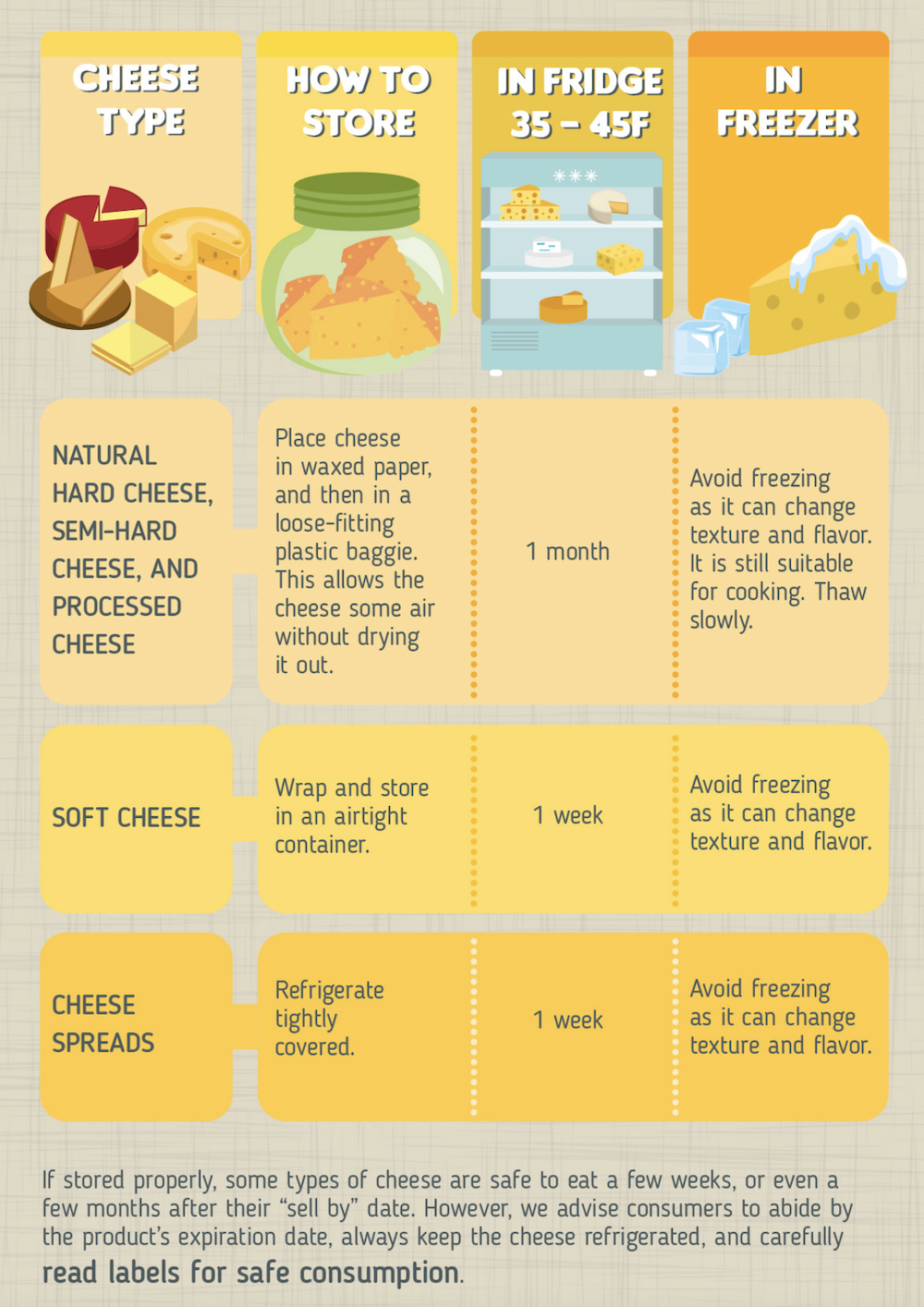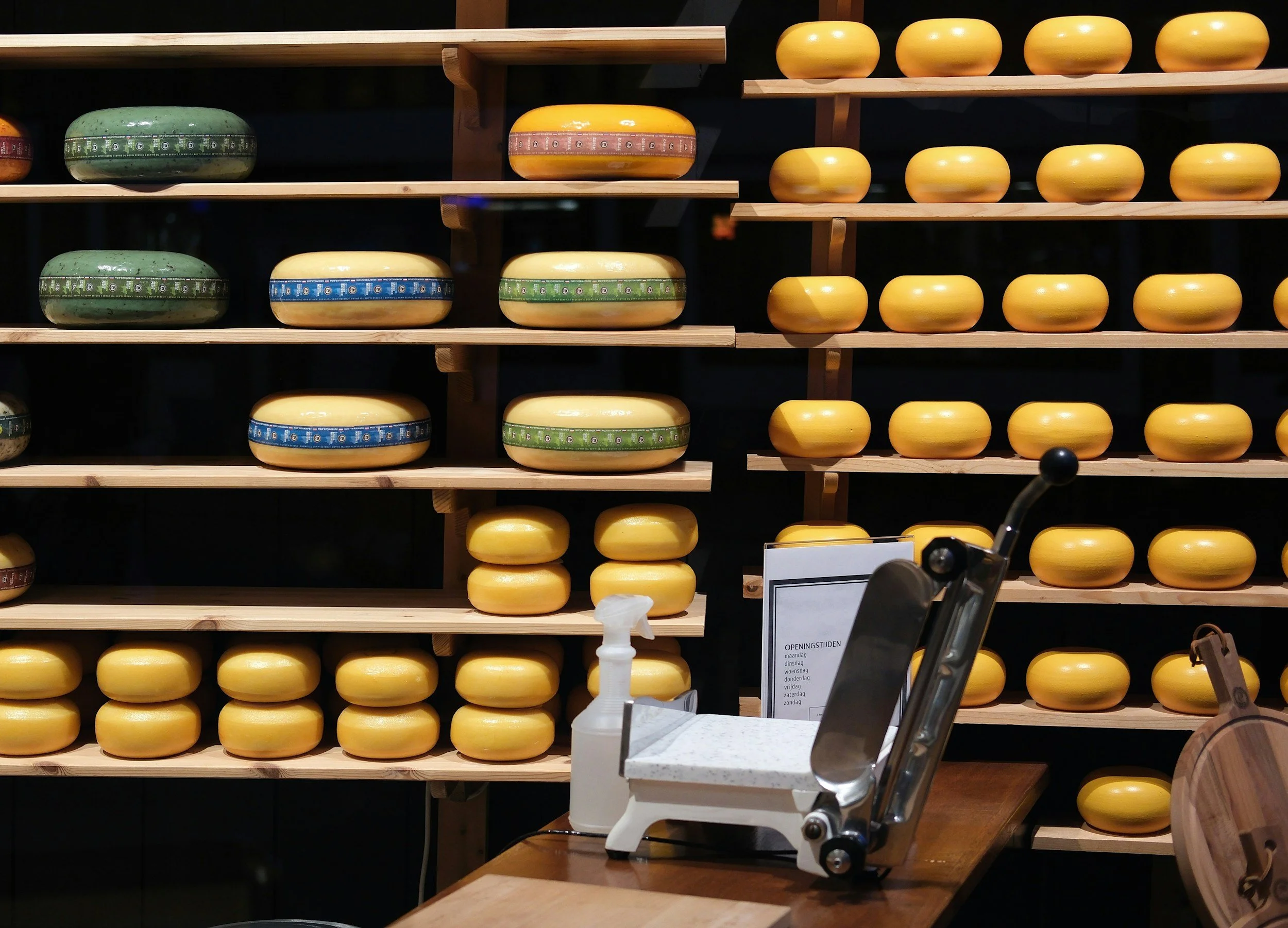Melting hearts, one wedge at a time.
Colourful. Flavourful. Unforgettable. This isn’t just cheese — it’s an experience.
Get Gouda-licious Ideas!If you're a supermarket, deli, or hospitality venue in New Zealand sourcing authentic Dutch cheese from Global Cheese Boutique, proper storage and care are key to maximising quality, shelf life, and customer satisfaction.
This guide answers the most searched questions around how to store cheese, how long cheese lasts, and how to wrap artisan Dutch cheeses — so your team can confidently handle and display our range of wholesale European cheeses.
Unwrapping & Wrapping Cheese Properly
Best Practice:
When unwrapping cheese from its delivery packaging, avoid using plastic wrap as your final storage layer. It traps moisture and can alter the flavour and texture of aged cheeses.
✅ DO:
Use cheese paper, wax paper, or parchment paper
Then loosely wrap in foil or place in a container to allow slight airflow
Replace wrapping every 2–3 days to prevent moisture buildup
❌ DON’T:
Wrap directly in plastic — it suffocates the cheese
Use cling film for soft or aged rinds
Should You Store Cheese in the Fridge?
Yes — but not too cold.
Refrigeration is essential for safe cheese storage, especially in New Zealand’s warmer climate. But artisan cheese doesn’t like extreme cold.
Ideal Storage Temp:
5–9°C (Chiller or dedicated cheese drawer)
Avoid placing cheese near the fan or freezer vents — it will dry out
Wrap properly to maintain humidity and stop flavour transfer
Storing Cheese for Retail Display or Commercial Kitchens
For Supermarkets & Delis:
Use humidity-controlled displays
Keep cheeses grouped by type (washed rind, semi-hard, infused)
Rotate stock using FIFO (First In, First Out)
Pre-cut wheels should be re-wrapped daily
For Restaurants & Caterers:
Store cheese in covered trays with absorbent cloth
Avoid stacking cheeses directly
Let cheese come to room temperature before serving
Some changes are completely natural.
White or blue surface mold on aged cheeses? Normal. Simply scrape it off before rewrapping.
Darkened rinds or drying edges? Usually just air exposure. Trim and serve.
Wet spots, sour smells, ammonia, or black mold? These are signs to discard the product.
💡 Artisan cheese is alive — it will continue to mature, breathe, and evolve in storage.
What do you do?
Mold & Visual Changes – What’s Normal?
What About Cheese Paper or Eco Wraps?
Cheese paper (or specialty wraps) is designed for optimal humidity control and breathability. Ideal for long-term storage in:
Supermarkets
Gift packs
Cheese subscription boxes
Reusable cheese wraps (like beeswax paper) are great for:
Eco-conscious cafés and grocers
Reducing packaging waste
Gifting and presentation
How Long Can You Keep Cheese at Room Temperature?
For Retail Tastings or Catering:
Artisan cheese can be out for up to 2–4 hours at room temperature
Best served at 15–20°C to release aroma and texture
Do not return cheese to storage after sitting out all day — cut fresh next time
For gifting or delivery:
Ensure chilled delivery
Include storage instructions for the end customer











